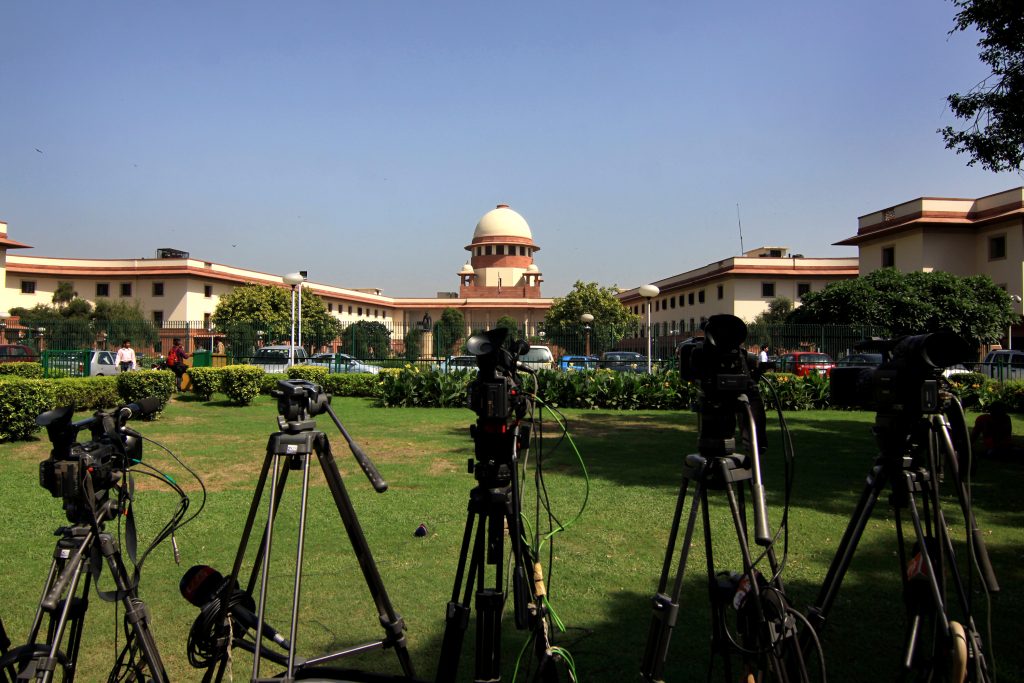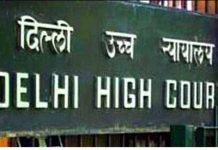The five-judge bench of the Supreme Court headed by CJI DY Chandrachud has struck down the controversial electoral bonds scheme brought by Modi govt and ruled that information about funding of political parties is essential for effective exercise of the choice of voting, writes Mudit Mathur

In a historic judgment, the Constitution Bench of five Supreme Court judges has struck down controversial electoral bonds scheme brought by Narendra Modi government, for being violative of the Article 19(1)(a) of the Constitution of India. Information about funding of political parties is essential for the effective exercise of the choice of voting, it ruled.
The Apex Court pronounced a unanimous decision, with Chief Justice DY Chandrachud delivering the lead judgment with justices BR Gavai, JB Pardiwala and Manoj Misra while Justice Sanjiv Khanna penned a concurring judgement with a slightly different reasoning.
While directing the State Bank of India to stop issuing electoral bonds, it further directed the SBI to issue details of the political parties which received electoral bonds and all the particulars received and submit them to ECI by March 6. The SBI shall furnish bonds, purchase details with date of purchase, name of purchaser and denomination. The SBI shall also submit details of parties who received contributions through Electoral Bonds. The bank should disclose details of each bond encashed. By March 13, ECI shall publish this information on its official website. Electoral Bonds, which are not encashed by political parties, shall be returned and refunded to purchasers, the bench ruled.
Congress leader Jaya Thakur, the Communist Party of India (Marxist), and the non-governmental Association for Democratic Reforms have challenged the Electoral Bond scheme through Finance Act, 2017 before the apex court on the ground that they have opened doors to unlimited, unchecked funding of political parties. The petitions also raised the issue that the Finance Act could not have been passed as a Money Bill.
The Modi government has introduced Electoral bonds scheme through the Finance Act, 2017, which, in turn, amended three other statutes – the RBI Act, the Income Tax Act and the Representation of People Act – to enable the introduction of such bonds. The court held amendment to Section 29(1)(c) of RPA and IT Act amendment is declared to be unconstitutional. The amendments to the Companies Act are unconstitutional. It noted that the infringement to the right to information is not justified with the stated purpose of curbing black money.
The electoral bonds scheme allows donors to anonymously send funds to a political party after buying bearer bonds from the State Bank of India (SBI). Through it, companies and individuals in India can make anonymous donations to political party. Rs 16,518 crore worth of electoral bonds were sold from 2018 to the start of 2024, the government recently informed Parliament. It was revealed under Right to Information Act that from January 2 to January 11, 2024 the Electoral bonds worth more than Rs 570 crores have been sold in the latest phase of the sale.
Chief Justice of India DY Chandrachud, while reading out the judgment, also said that financial contributions to political parties are made either to support it or in fulfilment of a quid pro quo arrangement. Right to privacy of political affiliation does not extend to contributions made to influence public policy and applies only to contributions below the threshold, the bench stressed.
The bench noted that under the scheme, while the ruling party would have the identity of the donors, no opposition party could have it.
Reading out settled view on the issues raised before it during arguments, Justice Chandrachud expressed, whether right to information under 19(1) includes right to know about political funding? “I lay down our reasonings and conclusions now. This Court recognised the right to information about social, cultural, political, and economic issues … and that it is not limited to State affairs but to further participatory democracy principle.”
“Political parties are relevant political unit in the political process. Information about political funding is essential to exercise correct choice of voting. Economic inequality leads to differing level of political engagements. Access to information leads to influencing the policy making and also leading to quid pro quo arrangements may also help a party by the party in power, Electoral Bonds scheme is violative of right to information under Article 19 (1)(a),” the Could held.
“Fundamental right to privacy includes a citizen’s right to political privacy and political affiliation. Information about a citizen’s political affiliation can lead to subjecting a citizen to curbs or subjecting them to trolls. It can be used to disenfranchise voters through voter surveillance. Book purchase history shows the ideological leanings, etc., can lead to gauging political affiliations. Financial contribution to political parties are generally for support to party or for quid pro quo. Law as of now allows it by corporations and individuals. When the law permits political contributions, showing political support, it is duty of constitution to protect them. Some contribution is also for not major parties and it is generally to show support,” the Chief Justice emphasised.
The Congress Party welcomed the decision of the Supreme Court and demands that SBI should put all the information in the public domain, so that the public can know who gave how much money. This scheme was brought by the Modi government in the form of a Money Bill, so that it could be passed directly without discussion in the Rajya Sabha, it said. “What has BJP sold in exchange of the Rs 5200 crore it has received in Electoral Bonds. “We fear that another ordinance may be issued again and the Modi government may be saved by this decision of the Supreme Court,” apprehended Pawan Khera Chairman of Media and Publicity Department of the party.












